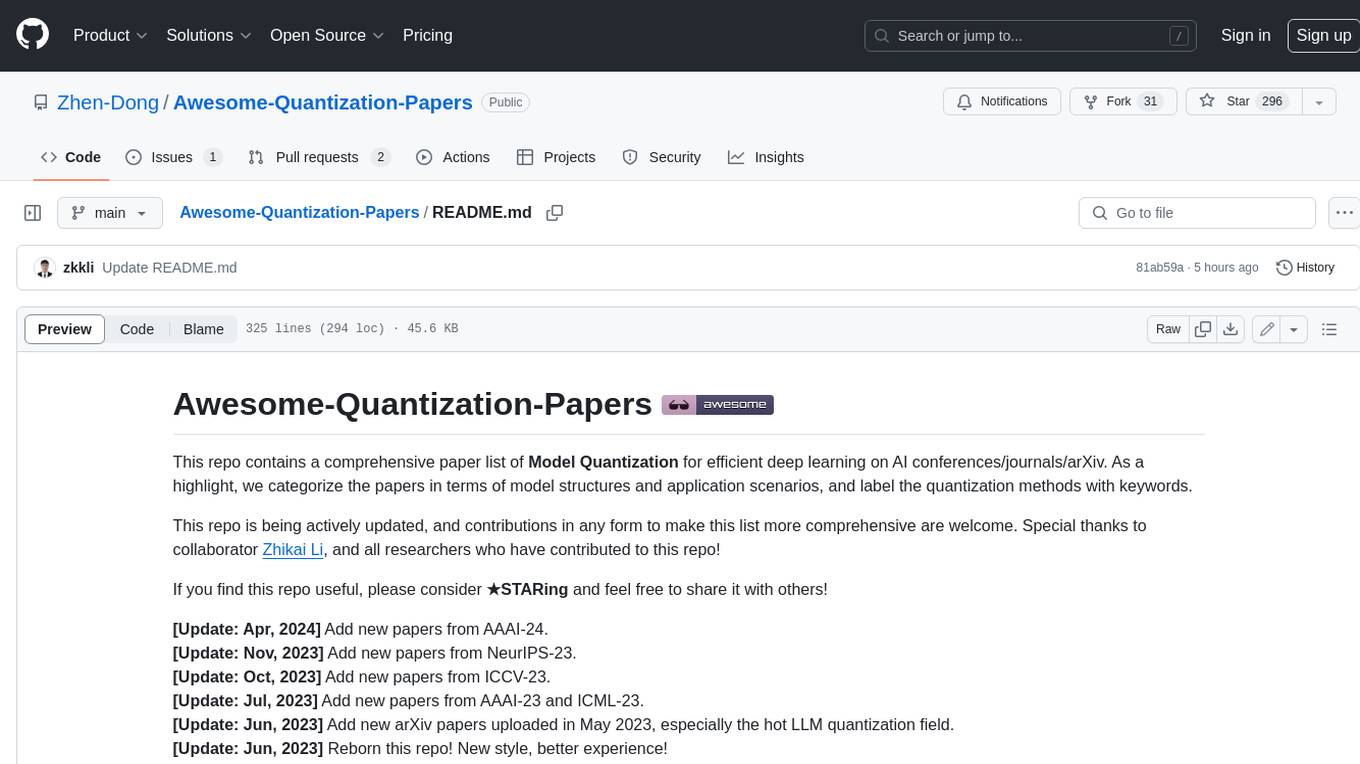Best AI tools for< Quantize Language Transformer >
0 - AI tool Sites
No tools available
1 - Open Source AI Tools

Awesome-Quantization-Papers
This repo contains a comprehensive paper list of **Model Quantization** for efficient deep learning on AI conferences/journals/arXiv. As a highlight, we categorize the papers in terms of model structures and application scenarios, and label the quantization methods with keywords.
github
: 296
0 - OpenAI Gpts
No tools available